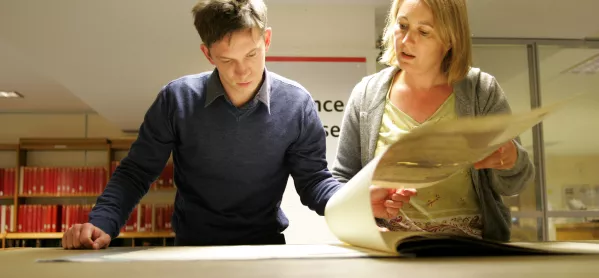There aren’t many organisations that are almost universally popular. Especially not ones that have been initiated by a government minister, and especially not when that minister was one Michael Gove.
But the Education Endowment Foundation (EEF) is close to the hearts of many in education, be they teachers, academics or policymakers. It was inspired by US president Barack Obama’s Race to the Top programme and was set up in 2011 by the Sutton Trust and Impetus Trust with a £125 million grant from Mr Gove - then at the helm of the Department for Education - to raise the attainment of disadvantaged children.
Its chief executive, Sir Kevan Collins, has long been passionate about and committed to improving the outcomes of poorer children. “The focus of much of my work has been on how we can create a more reliable system for everybody,” he says (see pages 24-30 of this week’s TES magazine).
Now, five years on, around one in four schools is involved in an EEF project - some 7,400 in total. Probably its best-known initiative, the Teaching and Learning Toolkit, is used by two-thirds of school leaders.
However, despite its popularity the EEF does have its critics, some against the use of randomised-controlled trials (100 of its 121 evaluations so far), imported from the world of medicine and controversial because they deny a group of children what could be a valuable intervention. Others say that, far from empowering teachers, the evidence-led approach advocated by the EEF undermines their professional judgement, autonomy and intuition, and treats teaching as a science, not the moral project that they believe it is.
A further criticism levelled at the organisation, which deserves some unpicking, is that some projects show no results and are therefore a waste of time and money. However, the publication of all outcomes, including null results, is vital - and is a non-negotiable for the EEF for a couple of very important reasons.
In both education and medicine, publication bias is a big problem: that is, publishing only outcomes that show a positive or negative, otherwise known as the “file drawer problem”. This is where results that fail to support researchers’ hypotheses get stuffed into their file drawers, never to see the light of day.
The EEF’s early commitment to publish all results is of enormous importance in a sector where confirmation bias is rife and ideology and favoured ideas abound. But don’t just take my word for it, heed those of philosopher of science Karl Popper: “If we are uncritical, we shall always find what we want: we shall look for, and find, confirmations, and we shall look away from, and not see, whatever might be dangerous to our pet theories.”
The EEF - by its own admission - is setting an evidence bar that is far higher than the threshold used by many studies to justify significant changes in practice. Sir Kevan says that evidence should be tested thoroughly and confidence secured before encouraging schools to embrace initiatives. In the long run, this approach should save schools time and money and curtail lost opportunities.
That doesn’t mean, of course, that schools will always use the evidence wisely or well. History is littered with examples of good practice badly applied. But the fact that the EEF equips teachers with tested expertise gives them a powerful research arsenal that they previously lacked. What an irony, then, that it was created by a man who so recently dismissed the idea of “experts” to make a political point.
@AnnMroz
This is an article from the 8 July edition of TES. This week’s TES magazine is available in all good newsagents. To download the digital edition, Android users can click here and iOS users can click here
Want to keep up with the latest education news and opinion? Follow TES on Twitter and like TES on Facebook




